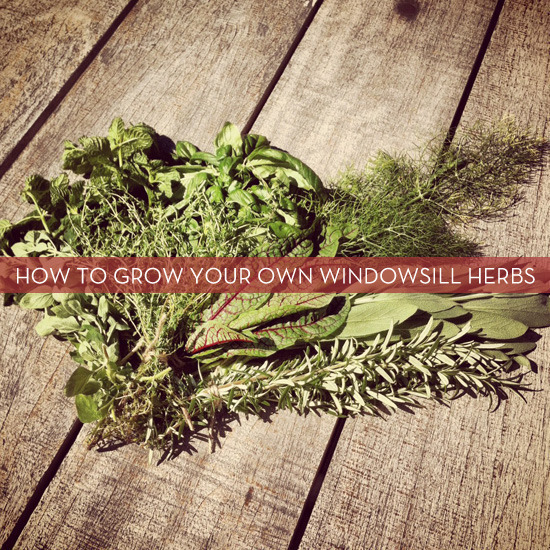After the great feedback from last week’s year round salad garden post I thought I’d continue in the same vein by turning our attention to herbs.
Herbs can completely transform a dish, adding to its complexity and taste. While you can use dry herbs in a pinch, there is something quite special about using fresh herbs, picked when you need them.
Store bought herbs in my opinion are rather wasteful as most times a recipe may only call for a sprig of mint, not the whole darn plant! You buy your herbs, use that sprig, and the rest sit at the back of the refrigerator until you can’t even make out if they are animal, vegetable or mineral. Those days are over!
Not all herbs will grow easily on a sunny windowsill, but here are few common ones that will happily thrive.
My suggestion in growing them is that you locate pre-potted herbs at your local garden center and start there, it’s more economical in my opinion as most of them are perennial (grow all year round), not needing to be reseeded.
Here are a few of my favorites and ingredients they pair well with.
Basil: Try it with tomatoes, salads, pizza toppings, salads, chicken dishes, egg dishes, fish (salmon & tuna), spaghetti, meatloaf, dips, pesto, green beans, wax beans, cauliflower, corn and soups.
Chives: Try them in dips, sauces, spreads, baked and mashed potatoes, egg dishes, salads, soups and as a garnish.
Mint: Try it with peas, mashed potatoes, jellies, cordials and desserts.
Parsley: Try it with mashed potatoes, pastas, eggs and as a garnish
Sage: Try it with most meats, particularly poultry (chicken, duck, turkey), stuffing and squash.
Rosemary: Try it with lamb, chicken, pork, cauliflower and roast potatoes.
Thyme: Try it with soups, chowders, marinades and meat dishes.
Much like growing vegetables, herbs require +6 hours of sunlight a day, with a well drained potting soil and moderate watering. Make sure you use a drip tray to catch any excess water and don’t let the plants sit in it, rather pour it out to prevent root rot.
And there you have it. A couple easy to grow herb suggestions and ingredients/dishes they pair well with, taking care of the guess work. That’s not to say you shouldn’t experiment with other combinations, but if you are new to herbs, start there. The key is moderation, season to taste.
